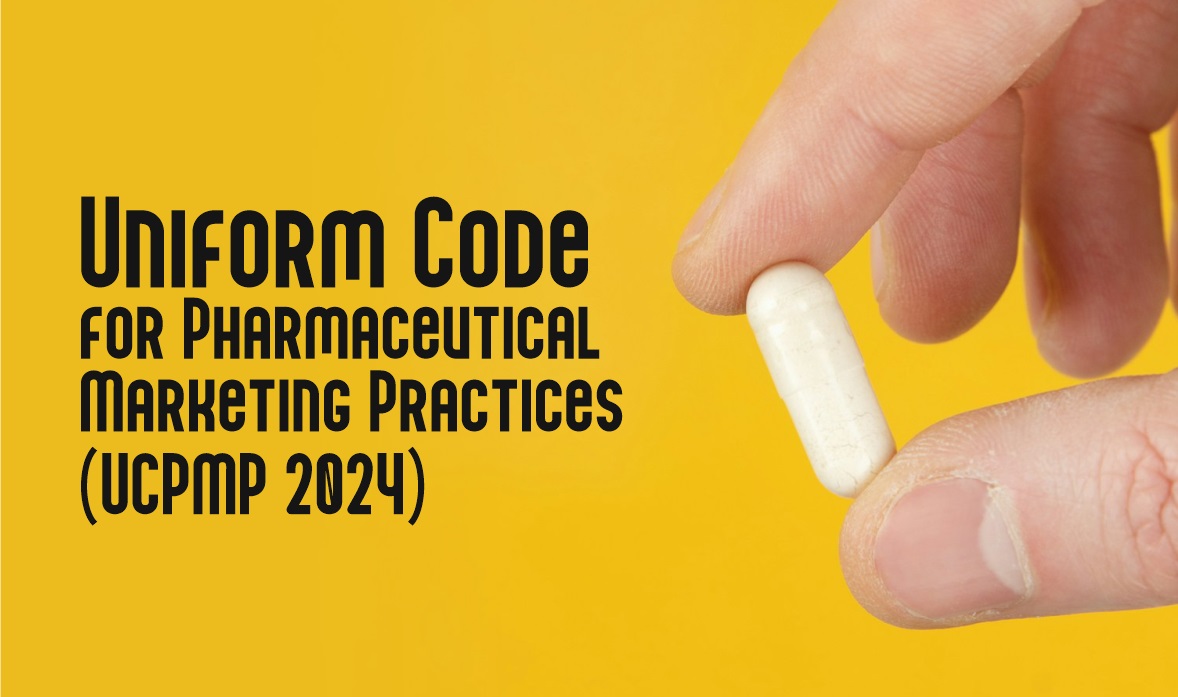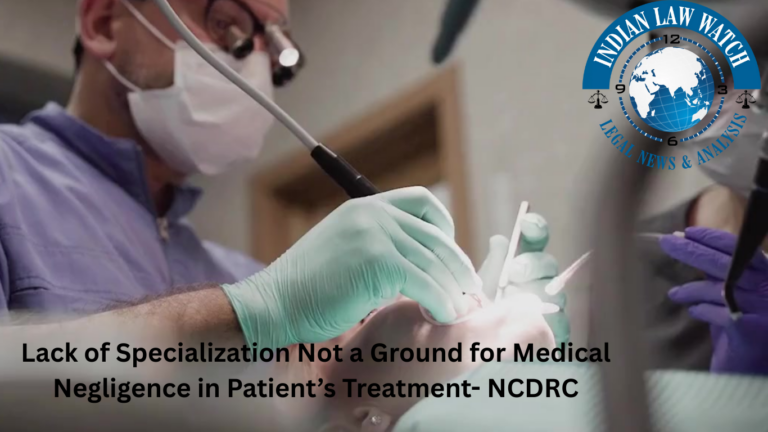

The Government of India has issued a marketing code for pharmaceutical firms, both in 2014 and now again in 2024, to regulate and standardize marketing practices within the industry. The new code aims to ensure ethical marketing behavior, promote transparency, and safeguard the interests of consumers. It includes guidelines and regulations on promotional activities, advertising practices, interactions with healthcare professionals, and the dissemination of medical information. Known as the Uniform Code for Pharmaceutical Marketing Practices (UCPMP 2024), it is a voluntary code issued by the Department of Pharmaceuticals under the Ministry of Chemicals and Fertilizers. The UCPMP serves as a guideline for the Indian pharmaceutical industry to ensure that their marketing practices adhere to ethical standards.
The UCPMP 2024 is broadly aiming at regulating:
- Conduct of medical representatives
- Free samples
- CME
- Brand reminders
- brand reminders categorized as informational and educational items
- Free samples subject to limits and conditions specified.
- Relationship with the Healthcare Professionals (HCPs)
Policy Document of 2024, an initiative for strict adherence
The Department of Pharmaceuticals (DoP) has issued a communication dated March 12, urging pharmaceutical industry representatives to adhere strictly to the UCPMP 2024. The UCPMP outlines guidelines for various aspects including claims, comparisons, and the relationship between healthcare professionals and medical representatives. Additionally, pharma associations are required to establish a five-member Ethics Committee for Pharma Manufacturing Practices (ECPMP) and create a dedicated portal on their websites to facilitate compliance.
Key aspects of the UCPMP
- Prohibition of Misleading Information: The code prohibits any promotion that contains false, misleading, or unsubstantiated claims about the efficacy or safety of a drug.
- Gifts: It restricts the provision of gifts to healthcare professionals and prohibits any gifts, pecuniary advantages, or benefits in kind.
- Hospitality: The code limits the extent of hospitality offered to healthcare professionals and explicitly prohibits lavish hospitality.
- Samples: The provision of drug samples to healthcare professionals must be reasonable in quantity and should not be given as an inducement to prescribe or recommend a particular medication. The UCPMP 2024 prohibits the distribution of free samples to unqualified individuals and prohibits companies from offering gifts or travel accommodations to healthcare professionals or their families.Top of Form
- Sponsorship: Sponsorship to healthcare professionals for attending conferences, seminars, workshops, and other educational events is regulated under the code to ensure that it does not constitute an inducement to prescribe or recommend a particular drug. The UCPMP Code had specific guidelines regarding the sponsorship of CMEs by pharmaceutical companies. These guidelines are intended to prevent conflicts of interest and ensure that the educational aspects of CMEs are not influenced by commercial interests. The key points typically include:
- Transparency: Pharmaceutical companies should disclose any involvement in the sponsorship of CME events.
- Separation of Marketing from Education: The educational content should be kept separate from any promotional activity. The company should not influence the content of the CME.
- Appropriate Venue: The venue for CME should be conducive to the main purpose of education and not be lavish or extravagant.
- Hospitality: Any hospitality provided by the company should be strictly limited to the main purpose of the event and should not extend to spouses or other family members of the healthcare professionals.
- Gifts: No gifts or financial incentives should be offered to healthcare professionals for attending CMEs.
- Miscellaneous: Furthermore, pharmaceutical companies are required to disclose event details, including incurred expenditures, on their websites. Similarly, all event organizers must transparently outline participant and speaker selection procedures, as well as disclose funding sources and expenditures on their websites. Pharmaceutical companies, event organizers may be subject to risk-based or special audits for this purpose. Additionally, entities incurring expenses on such events as well as participants and speakers, must adhere to the relevant provisions of the Act.
- Educational Grants: Any educational grants provided by pharmaceutical companies must be transparent and declared. defined, transparent and verifiable set of guidelines. Pharmaceutical companies, including their Trusts/ associations, either alone or in collaboration with professional bodies, institutions as specified, are inter alia permitted to engage in such activities/ events. Notably, the conduct of such events in foreign locations is prohibited.
- Non-Interference: The code emphasizes that marketing practices should not interfere with the independent judgment of a healthcare professional.
- Compliance: Companies are encouraged to appoint an Ethics Officer or similar role to ensure compliance with the code.
- No promotion of new drugs without approval: The new guidelines mandate that pharmaceutical companies cannot promote any drug until it receives marketing approval from the relevant regulatory authority. Information about drugs must be accurate, balanced, and current, avoiding any misleading statements directly or indirectly.
- Disclosure of financial relationships: Requirements for pharmaceutical companies to disclose any financial relationships, sponsorships, or conflicts of interest with healthcare professionals, institutions, or organizations involved in the promotion or prescription of their products.
- Fair competition: Prohibitions against unfair or deceptive marketing practices, including false or misleading claims about product efficacy, safety, or superiority compared to competitors’ products.
- Compliance monitoring and enforcement: Mechanisms for monitoring compliance with the marketing code, investigating complaints or violations, and imposing penalties or sanctions on companies found to be in breach of the code.
- Support for research: The Code governs interactions between pharmaceutical companies and healthcare professionals (HCPs) for research purposes. It requires that engagements of HCPs in consultant-advisory roles be solely for genuine research services, conducted under consultancy agreements that involve appropriate compensation. These engagements must prioritize patient interests and uphold the integrity of the HCP, adhering to regulations set by the National Medical Commission (NMC). Research studies must have approval from competent authorities and, where applicable, be conducted at recognized sites or locations.
- Relationship with HCPs: The Code strictly prohibits pharmaceutical companies and their agents from offering gifts or financial benefits to healthcare professionals (HCPs) or their families, including extended family members. Travel facilities or hospitality cannot be provided to HCPs or their families, except in cases where the HCP is a speaker for a Continuing Medical Education (CME) or Continuous Professional Development (CPD) program. Cash payments or monetary grants to HCPs or their families are also prohibited.
Dispute Resolution and Appellate body
The Code outlines procedures for lodging complaints, addressing unaddressed issues, imposing penalties, and handling appeals, as well as defining the responsibilities of pharmaceutical company CEOs. The Ethics Committee for Pharma Manufacturing Practices (ECPMP) within each association has the authority to take actions such as suspension or expulsion from the association upon finding a breach of the Code. In cases where government agencies have jurisdiction over disciplinary or remedial action, the Committee may forward recommendations to them through the Department of Pharmaceuticals (DoP).
A new appeal mechanism allows parties to appeal decisions made by the ECPMP to the Apex Committee for Pharma Marketing Practices (ACPMP). The ACPMP may prescribe penalties or refer the matter to appropriate government authorities. Decisions made by the ACPMP in appeals are final and binding.
Compliance Officers
CEOs of pharmaceutical companies are responsible for ensuring compliance with the Code and must submit a self-declaration annually within two months after the end of the financial year. This declaration should be uploaded onto the association’s website or directly onto the UCPMP portal of the DoP if the CEO is not a member of such an association or is a member of multiple associations.

The Uniform Code for Pharmaceutical Marketing Practices (UCPMP) 2024, initially voluntary, has sparked discussions about making it mandatory and enforceable from 2014 to 2024. Issued by the Government of India, this marketing code demonstrates a commitment to fostering responsible and ethical marketing practices within the pharmaceutical industry. Its aim is to safeguard public health and uphold the integrity of healthcare delivery. Compliance with the code is typically compulsory for pharmaceutical companies operating in the country, with regulatory authorities tasked with enforcement and oversight. Furthermore, the provisions of the code extend, with necessary adjustments, to medical devices and related companies, unless specifically exempted or modified. In instances not covered by the code concerning the relationship with healthcare professionals (HCPs), the guidelines outlined in the Indian Medical Council (Professional Conduct, Etiquette, and Ethics) Regulation of 2002, as amended periodically, take precedence.





